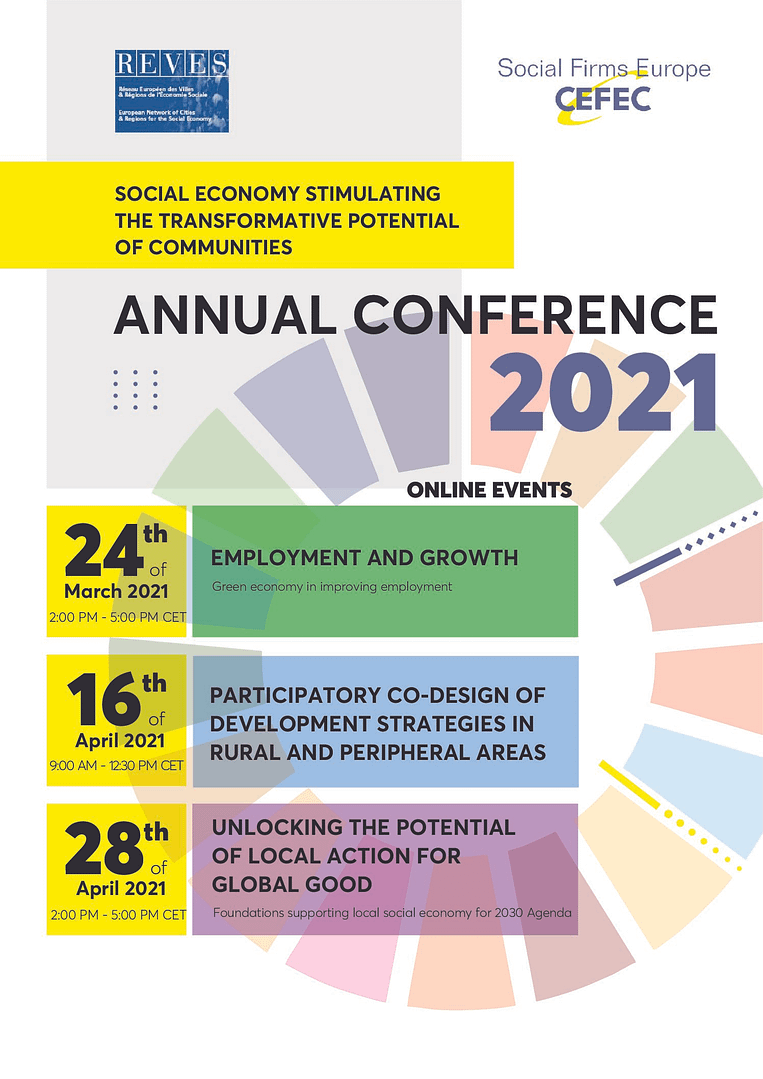We have the pleasure to invite you to our 35th Annual Conference, which will be organized online, through a series of webinars taking place in the period March-April 2021, in collaboration with REVES network , under the title Social economy stimulating the transformative potential of communities.
- The 1st webinar, “Employment and Growth – Green Economy for improving employment” took place on 24 March 2021 and was organized by Social Firms Europe CEFEC. The Agenda of the 1st webinar, with the topics and the speakers, can be downloaded from here.
- The 2nd webinar will be organized by REVES network on 16 April 2021, with the topic “Participatory co-design of development strategies in rural and peripheral areas”. Local, regional and European policy-makers, representatives of the social economy and others will present their experiences of and views on newly emerging models of cooperation and innovative practices, but also main challenges promising initiatives are confronted with. Niklas Nienaβ – Member of the European Parliament, Laurent de Mercey from DG Regio/European Commission and INTERREG experts will join discussions around (upcoming) EU policies and initiatives that might help stimulating participation, creativity and innovation in rural area.
- The 3rd webinar, “Unlocking the potential of local action for global good – Foundations supporting local social economy for 2030 Agenda”, will be prepared for 28 April 2021 by Assifero and Dafne – Donors and Foundations Networks in Europe, in cooperation with ECFI – European Community Foundation Initiative. The final part of this webinar will be dedicated to common outcomes and final conclusions.
The current and increasing tendency to urbanization of people is evident, sometimes even considered as an irreversible phenomenon. Lowering quality of life and lack of opportunities in one’s own place are often the engines forcing people to move to urban areas. Through this series of webinars, CEFEC, REVES and ECFI aim to look into problems, solutions and perspectives that would allow for each person to choose his/her place in life and for rural and urban areas to prosper not as opposite poles.

